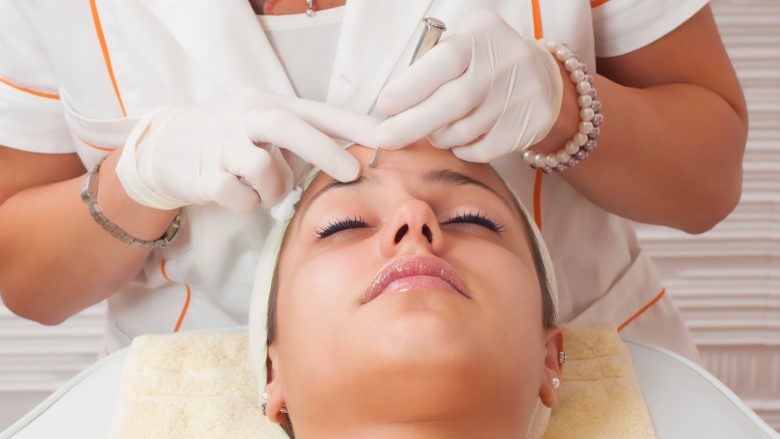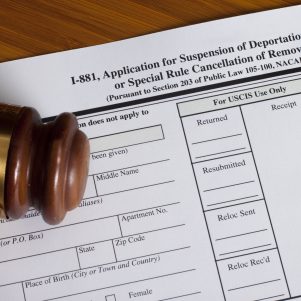Transgender Customer Demanded ‘Full Brazilian’ From Beauty Salon Under Massachusetts Gender Identity Law
By Matt McDonald | September 27, 2018, 15:02 EDT

A biological male who identifies as a woman asked the Massachusetts Attorney General’s office to force a female-oriented spa on the South Shore to give him a bikini wax and other beauty services under the state’s gender identity law.
The transgender biological male said in the complaint that he contacted the spa in December seeking hair removal all over his body, including the area around his genitals.
The complainant also detailed his troubles with other spas in Braintree and Quincy, including one that “said I was not really a woman because I had a penis.”
“In general no one wants to work on transgender women,” the would-be customer wrote in the complaint. “… It is really difficult to find a full service spa that will work on transgender women.”
The biological male said he is courteous to beauticians and tips well.
“I feel I am a very desirable customer,” the transgender claimant wrote.
The transgender complainant, whose name is blacked out in redacted documents from the Attorney General’s office, withdrew the complaint in January, 20 days after he filed it, saying he wanted to contact another lawyer.
While the Attorney General’s office took no action at the time because of the withdrawal, the beauty salon complaint appears to be the sort of case supporters of the gender identity law envision.
The complainant told the Attorney General’s office he received advice in drafting the complaint from Mason Dunn, who is leading the Yes vote effort on Question 3 — a statewide referendum asking voters if they want to uphold or end a statute enacted in July 2016 that prohibits discrimination in public accommodations on the basis of gender identity.
Opponents of the gender identity statute say the complaint against the spa shows why voters should vote no on Question 3.
“My hope is that people understand that this is the inevitable consequence of this law,” said Andrew Beckwith, president of the Massachusetts Family Institute, in an interview.
Chanel Prunier, executive director of the Renew Massachusetts Coalition, which also opposes the gender-identity law, said the law puts women in the beauty industry in an untenable position.
“No law should force a woman to touch a man in a place she doesn’t feel comfortable, and she shouldn’t be forced to choose between her livelihood and touching the genitals of someone she doesn’t want to touch,” Prunier said in an email message. “This law goes way too far and should be repealed.”
Dunn, co-chairman of the Freedom Massachusetts Coalition, which supports the gender-identity law, was asked about the case by New Boston Post by email and voice mail. He did not respond directly. Instead, he provided a statement by email supporting a Yes vote on Question 3.
“The Yes on 3 campaign is focused on preventing discrimination and harassment of transgender people in all public places. We all care about safety and privacy and nothing about the transgender nondiscrimination law puts anyone at risk. Law enforcement officials from across Massachusetts and the state’s leading sexual assault prevention groups all support upholding this law. This law is about upholding dignity and respect for transgender people and that’s why we’re voting Yes on 3,” said Dunn, who is also executive director of Massachusetts Transgender Political Coalition.
The Massachusetts Family Institute, which advocates for Judaeo-Christian values in public policy, helped collect signatures to put Question 3 on the ballot to try to overturn the gender identity law. The statute is often called the Bathroom Bill because it guarantees people a right to use a public bathroom that corresponds to the gender they identify with even if it doesn’t correspond to their biological sex.
Supporters of the gender-identity law say it ensures basic rights for vulnerable transgender people who are often discriminated against and otherwise treated badly. Opponents say it endangers women and girls because it grants biological males access to bathrooms and locker rooms meant for females.
The beauty salon case doesn’t involve bathrooms, however.
It began in early December 2017, when a transgender person who describes himself as a disabled veteran found online a beauty salon in Milton called Belle Visage Day Spa. It’s an upscale salon in East Milton Square that gets mostly positive reviews online.
He called the salon and told the woman he got on the telephone that he had been using two “high-volume” salons in a neighboring town but wasn’t satisfied, and that he was willing to pay higher prices at Belle Visage for “a higher end experience,” according to a seven-page handwritten complaint he later filed with the state Attorney General’s office.
“At some point in the initial conversation I identified myself as a transgender woman,” the complainant wrote. “[Name redacted] asked me what exactly I was getting waxed and I told her everything from my eyebrows down including some hairs on my knuckles and toes. I also said I get a full Brazilian too – my butt cheeks, between my butt and my privates.”
The salon employee said she might not be comfortable performing a Brazilian, a style of waxing that removes pubic hair.
The complainant assured the salon employee that the hormones he was getting at the federal Veterans Administration hospital in Jamaica Plain prevent him from getting an erection without Viagra – “so she would not have to worry about an accidental or involuntary erection on my part.”
The would-be customer suggested coming in for a manicure and a pedicure so the salon workers could get to know him and feel comfortable.
During the same conversation, the would-be customer asked the salon employee “to advise the owner that when she was working on me that I am inviting her to ask any question she wants about me being transgender, my transition, anything.”
“Nothing is off limits,” the complainant wrote in the narrative. “My goal is to give the owner and her staff whatever they need to be comfortable and to demonstrate to them that I am a discriminating woman and the discriminating client they seek. I am not there for funny business. I am there to get the services that I as a woman require to feel good about myself and my body and I am prepared to pay their prices and tip accordingly.”
The salon employee booked an appointment for the would-be customer for about a week later. But when the transgender person called about the appointment the day before, a salon employee informed him the owner had cancelled it and instead offered a telephone number “of a man who waxes men in Brookline and said I should go there because I can’t come” to Belle Visage.
“I was upset,” the would-be customer wrote in the complaint, dated December 29, 2017. “… I told her I would have to discuss my options with a lawyer and I ended the call.”
He called out the co-owner of the salon, Stacey Winick, in the complaint.
“Stacey has damaged me. She has taken my dignity from [me] and left me unwhole,” he wrote.
The complaint names Belle Visage (which means “beautiful face” in French) and Winick as defendants.
Winick, contacted by New Boston Post, declined comment.
In the complaint the would-be customer asked the Attorney General’s office to force the salon to allow him “to order whatever services I require to feel good about myself and my body just like any other woman.”
The complainant also demanded “3 credits for their ‘Full leg (including Brazilian) waxing,” as well as three appointments for a “mani/pedi with paraffin and mud add on,” reasoning that the state’s consumer protection law that provides triple damages for violations should apply in this case.
Legal protections on the basis of gender identity have been steadily expanding in Massachusetts this decade.
In November 2011 then-Governor Deval Patrick signed a bill into law prohibiting discrimination on the basis of gender identity in employment, housing, education, lending, and credit.
That statute, which took effect on July 1, 2012, did not include public accommodations, which another state statute says include bathrooms, bathhouses, hotels, restaurants, bars, stores, museums, barber shops, and beauty parlors, among other places.
In July 2016, current Governor Charlie Baker signed a bill into law that makes gender identity a protected class in public accommodations, in addition to the other areas already protected since 2012. The ballot question now before voters would remove gender identity as a protected class in public accommodations, not in the other areas protected since 2012.
New Boston Post asked a Massachusetts civil-rights lawyer not connected with the beauty salon case, Lucas Newbill, of Brookline, for an expert opinion on the merits of the transgender person’s complaint under current state law.
Newbill said it’s clear that the beauty salon is a place of public accommodation under state law (Massachusetts General Laws Chapter 272, Section 98), but that if the case went to court both sides might be able to make cogent legal arguments.
“The complainant made it clear that the nail salon was happy to treat the client … except with regards to the Brazilian wax. This is a restriction in treatment that the complainant could reasonably argue violates her civil rights as protected under § 98,” Newbill said in an email message. “The nail salon might argue, however, that this is not a restriction in treatment because they simply don’t offer the service of waxing a person’s scrotum, whether on the body of one who identifies as a woman or a man. Additionally, for the state to require anyone to touch a scrotum or penis, which is what application of § 98 could be interpreted to require in this situation, raises civil rights questions of its own.”
Question 3 is on the statewide ballot in Massachusetts in the general election Tuesday, November 6.











